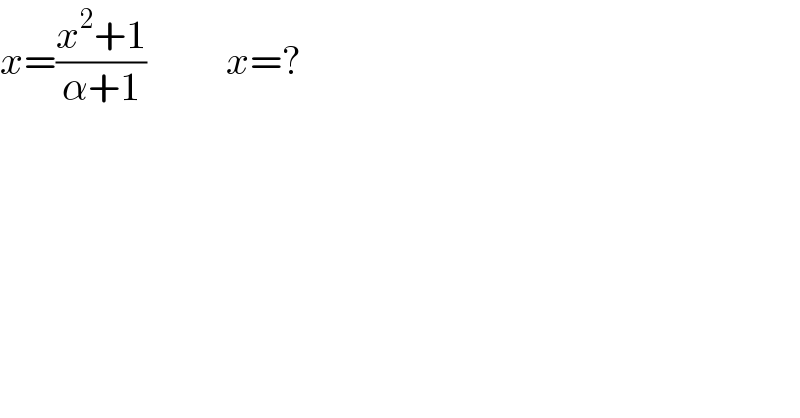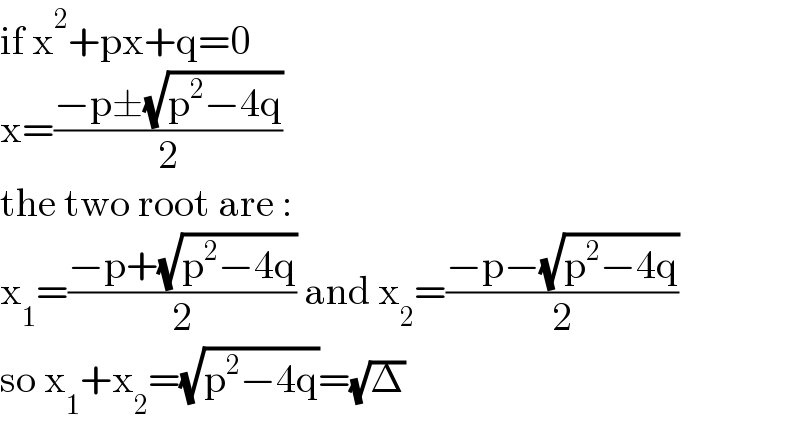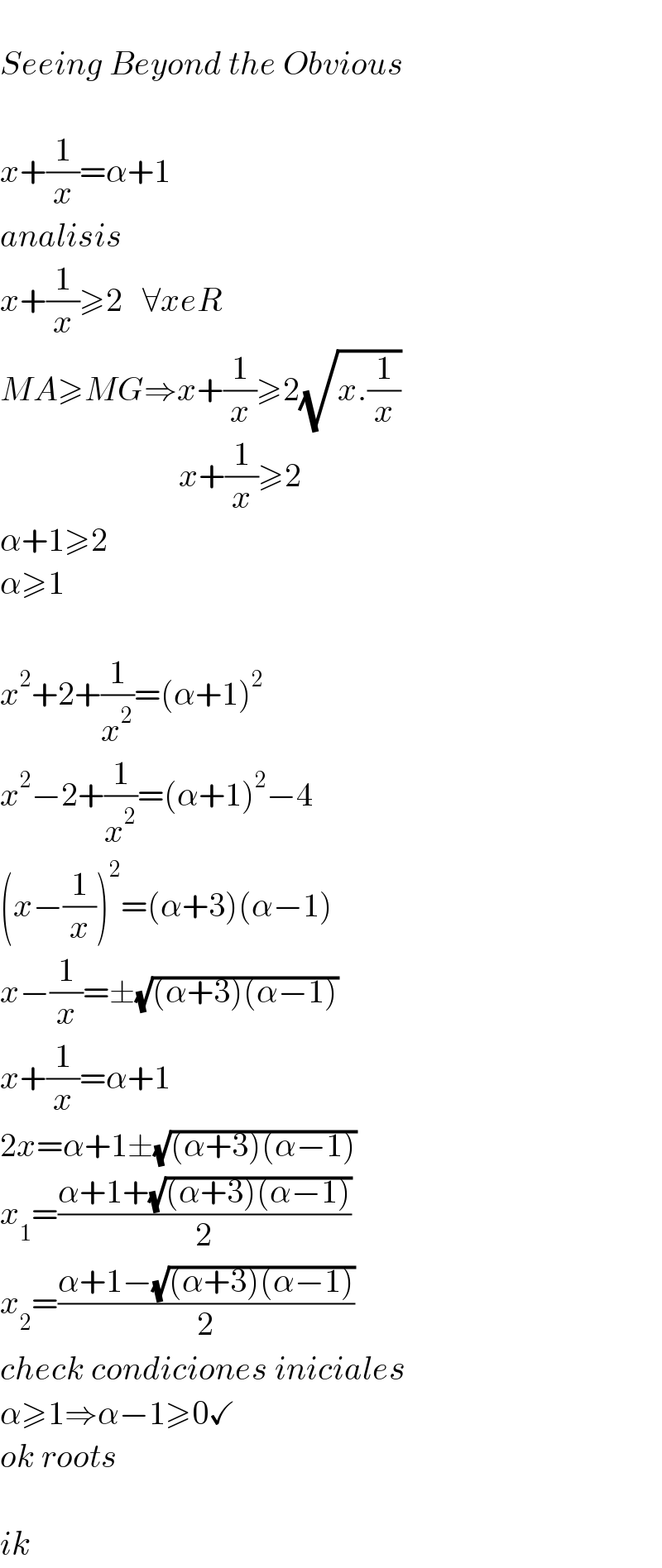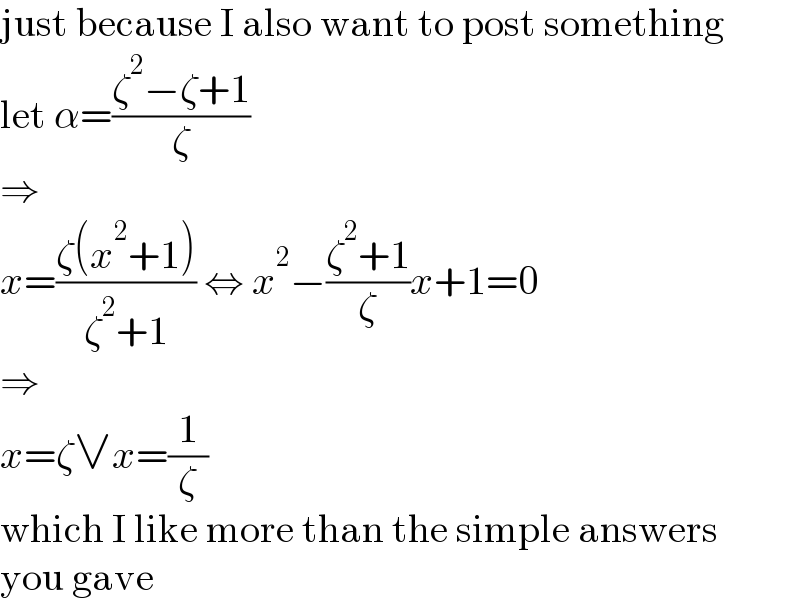
Question and Answers Forum
Question Number 185210 by mathlove last updated on 18/Jan/23

Commented by Frix last updated on 18/Jan/23

Commented by aba last updated on 18/Jan/23

Answered by aba last updated on 18/Jan/23

Commented by Frix last updated on 18/Jan/23

Commented by aba last updated on 18/Jan/23

Commented by Frix last updated on 18/Jan/23

Commented by aba last updated on 18/Jan/23

Answered by manxsol last updated on 18/Jan/23

Answered by MJS_new last updated on 18/Jan/23

Commented by manxsol last updated on 19/Jan/23

